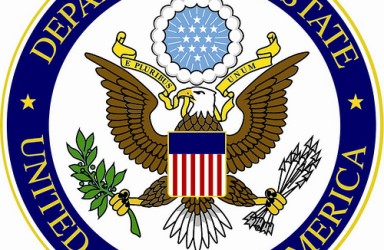The Iranian women’s rights movement and the election crisis
Images of women in chador and rusari (modest Islamic dress) beaten up by security forces in the streets of Tehran and other cities in Iran have dominated the news lately. Neda’s image and her brutal death in Tehran on Saturday June 20th in a protest demanding the annulment of the results of 10th presidential election in Iran has brought women’s active role in the post-election crisis into light.
Decisions Iranians Must Make and Others Should Support
It is absolutely accurate that Iran’s presidential elections began as a matter of that nation’s sovereignty. So did disputes over elections results. But after the regime in Tehran and Qom resorted to threats and violence against its own public, that administration lost its claim to legitimacy.
Reading into Iran’s Quantum of Solace
As disgusting as Mr. Ahmadinejad’s policies may be, we need to be very careful how we agitate and cheer the people in Iran into confronting the autocratic regime they are faced with. No matter how much we despise the actions of the security apparatus in Iran and admire the restraint and peaceful protests in the streets of Tehran, we should be conscious of the fact that as long as the Supreme Leader has not backed down from his position, there will be further bloodshed. Change is in the air – if not now, in the foreseeable future.
BLOOD BROTHERS
To understand American policy better, I suggest you consult a recent, very well written and argued paper by Stephen Peter Rosen of Harvard on why we Americans are less the peace-loving people we often claim to be.
The genie may not go back in the bottle
The Iranian leadership understands the dire straits it is in and fully appreciates it must start addressing the rampant inflation, unemployment and the acute need for direct foreign investment in the oil and gas industry. The chances are that the timing is right, for once, to get the current regime to respond honestly and transparently.
SOMETHING FISHY
Afghanistan is a country of 33,000,000 people that has been at war for 30 years, has a life expectancy of only 44 years, an infant mortality rate 151/1000 births, and experiences about 660,000 deaths from all causes per year. Life is hard, brutal and short in Afghanistan
Iran has lost the battle of global public opinion
The current political crisis in Iran and the ban on foreign media has proved that modern technology is challenging the monopoly of information management by the state. Today, modern technology is acting as an alternative instrument to expose matters, which the regime prefers to hide from the outside world.
‘Smart Power’: A change in U.S. diplomacy strategy
Smart power ‘is a concept that underscores the necessity of a strong military, but also invests heavily in alliances, partnerships, and institutions at all levels to expand American influence and establish the legitimacy of American action.’ More plainly, smart power is a combination of both hard and soft power approaches to diplomacy.
Elections without purpose: understanding the European Parliament elections of 2009
The elections are over, and again the pundits are lamenting the low turnout of European citizens at their parliament’s elections. These elections have again provided Eurosceptics with apparent evidence of lack of public support for Europe – no matter that European Parliament (EP) elections provide greater opportunities for Eurosceptic votes than for supportive votes.
PEER COMPETITOR
The American military keeps searching the horizon for a peer competitor, the challenger who has to be taken seriously. Is it China? What about an oil rich and resurgent Russia? Can we really trust those café-living Europeans? The Peer Competitor is here and about to hobble our interventionist inclinations. In […]




